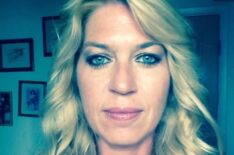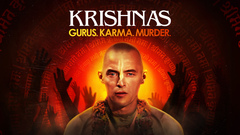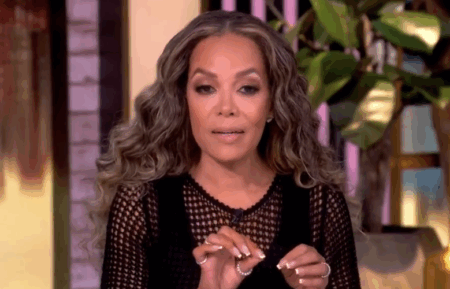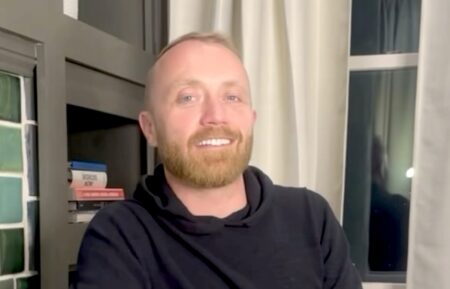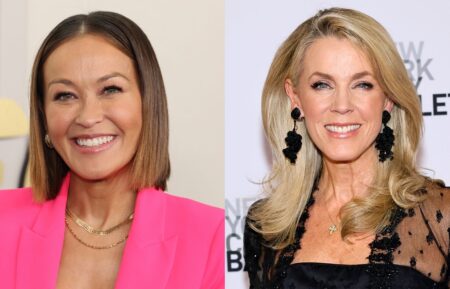‘Krishnas: Gurus. Karma. Murder’ EPs on Hit Jobs & Sex Abuse that Rocked Spiritual Movement
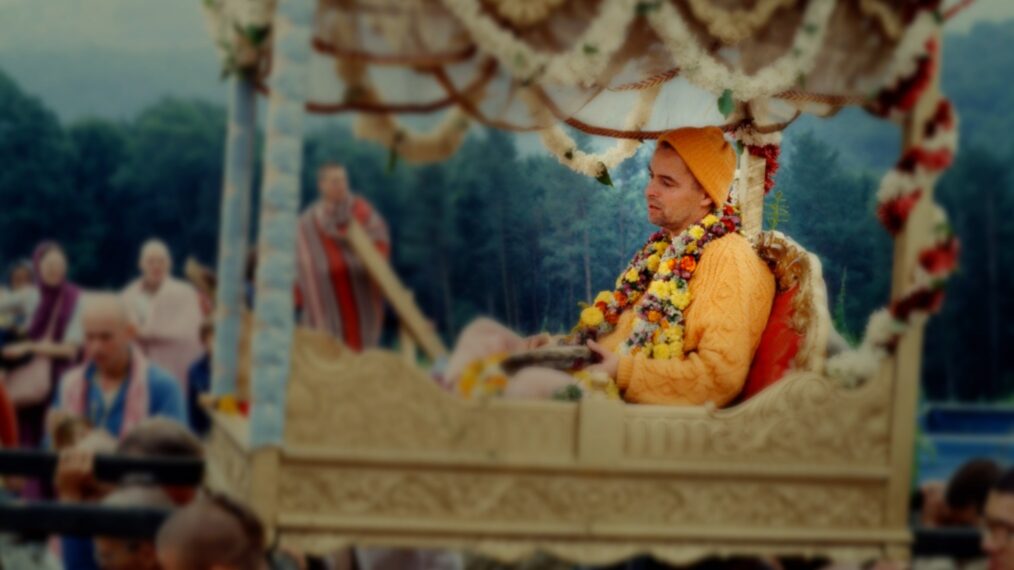
Q&A
The Hare Krishna movement in the United States was founded in the 1960s by religious leader A. C. Bhaktivedanta Swami Prabhupada. Followers were attracted by its ideology of spiritual awakening, rooted in peace and love. However, as seen in new three-part Peacock docuseries Krishnas: Gurus. Karma. Murder, things changed dramatically after Swami Prabhupada’s passing in 1977.
The movement got a new leader, Kirtanananda Swami (a.k.a Bhaktipada and Keith Ham), and with it came allegations of sexual, mental, and physical abuse within the compound of New Vrindaban in Marshall County, West Virginia.
Ham is said to have masked unspeakable acts and widespread corruption under the guise of religious beliefs, most notably involving he disappearance and murders of former devotees Charles St. Denis and Stephen Bryant. Both deaths were linked to Thomas Drescher, a devoted follower who went on to testify that Kirtanananda ordered hit jobs.
Here Joseph Freed and Allison Berkley, two of the docuseries’ executive producers, talk to us about the unraveling of Hare Krishna and the making of the series.
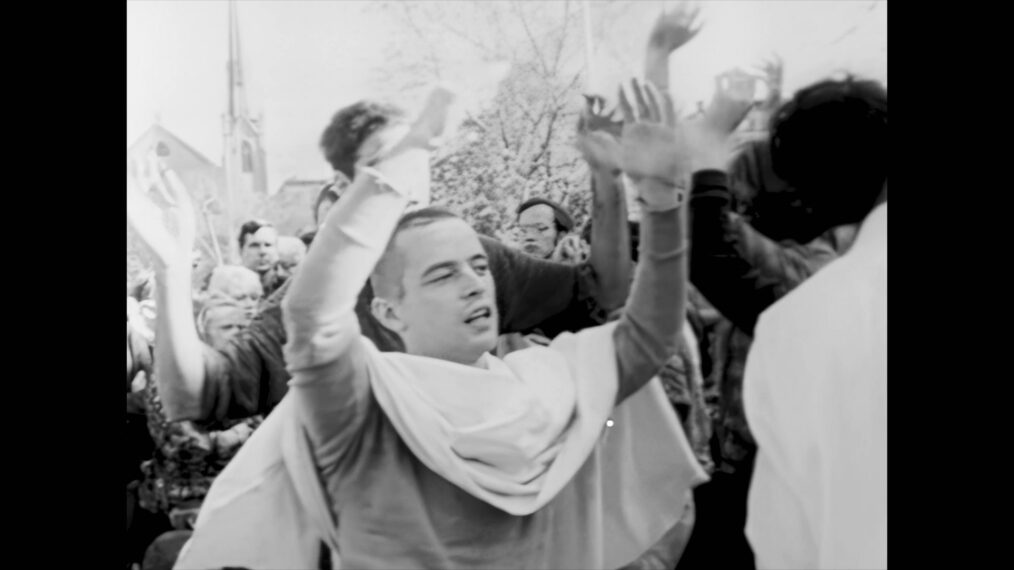
Pictured: Keith Ham — Peacock
Why do you feel now is a good time to relive this story?
Allison Berkley: We’ve been in this story for three years. We started getting into it in 2020. Joe and I have a history of our childhood knowing who the Hare Krishnas are and were. We felt like the reason it needed to be told is because a lot of the people have never really gotten their story out there. Specifically the kids from New Vrindaban.
Joseph Freed: It’s twofold in terms of its relevance today. One, there is a scene in this documentary that echoes through time. The pure idea that is corrupted, and it’s corrupted because of what? It’s corrupted because of greed, someone who is seduced by power. Even though this story happened many years ago, I think you see those types of events still play out. It’s that cautionary tale about power and how it can seduce. Then to back up what Allison said. For someone like Bhima [Karma Saragrahi], who shares this story of his father’s murder. Shares the story of his own abuse. Yes, this story happened a while ago. But for him, it’s a story that lives in his mind and heart every day…I thnk he speaks on behalf of a lot of victims of abuse whose stories have not been widely told publicly.
How was it building the trust with the ones you’ve spoken to?
Allison: I think with all the documentaries we do, it just takes time. Most of the documentaries we’ve done that deal with very personal subject matters typically take two or three years to build relationships with. We want them to understand what the story is we want to share. And then our job is to do our best to share that story and keep their truth no matter what. The journey has been long and slow, building relationships and hearing from each participant.
Joseph: We have a responsibility of helping tell the story of trauma survivors Since we’ve done that in the past whether it’s a documentary we made with Elizabeth Smart or others. We are also able to offer up some of our past work and say, “This is what we’ve done in the past. If you respond to this, maybe there is a way for us to work together.
Among those you speak with is Dennis Gorrick, who was very much entrenched with Kirtanananda. How was it getting him to agree to participate?
Joseph: We were really excited when Dennis decided to participate because it was clear that he wanted to be honest about what happened when he was in New Vrindaban and what happened to his relationships. Why did he feel they happened? Also, in telling this story, the great challenge for us was to get all the voices together. When you look at the documentary, we have two of the gurus who took control of the movement after Prabhupada passed.
We have that first-generation and second-generation Krishna and law enforcement and everyone who lived around that part of the country. To be able to put it all together. With Dennis, it was important because he was right there for so many of the events that happened.
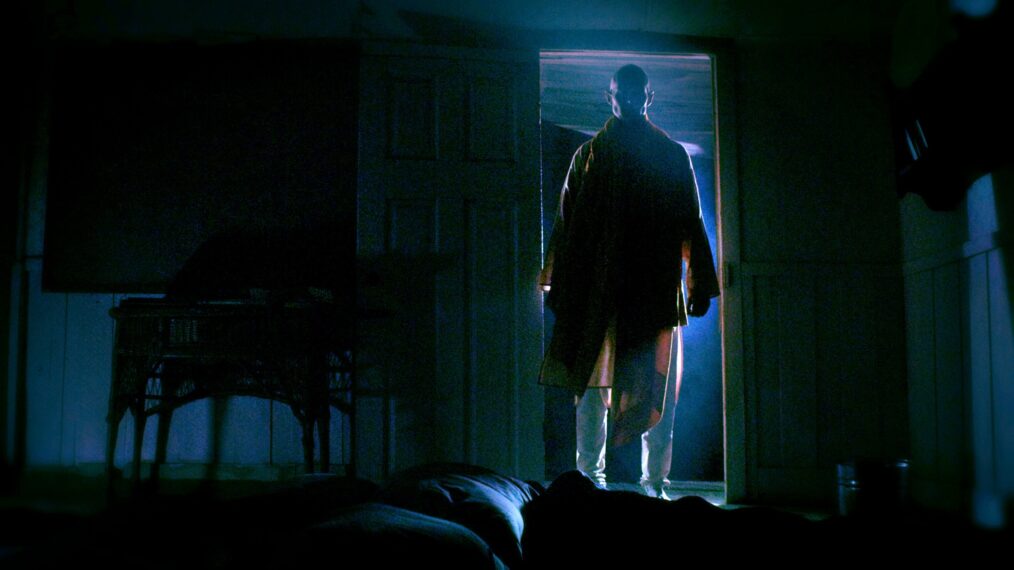
Peacock
As you’re working on the project, what did you find most eye-opening?
Joseph: I will say there are twists and turns in this story from a pure storytelling point-of-view. I don’t want to reveal too much but there is something that happens to one particular witness before he gets a chance to testify in a case. There is a mystery as to why this happened. There is a house that blows up, let’s say. That was completely unexpected.
I think what also came into focus the more we explored was, yes, we have New Vrindaban and what happened there. But the more we learned about the scope of the global movement as well. The origins and the period of transition. That opened our eyes to how rich and truly epic of American history this is. Part of Prabhupada’s dying words was that lust and greed exist in the world and that’s very dangerous. It’s almost a prophecy because as soon as he passes, his movement is diminished and corrupted by those exact things of lust and greed.
You also have members of the law enforcement agencies including the FBI here to talk.
Joseph: Sgt. Thomas Westfall was one of the first people to sign on in West Virginia. It’s clearly one of the cases that defined his professional career. I think once he got the sense of the documentary he signed up pretty much right away. Then it was a domino effect on others.
Allison: You think of how big this case was for everyone and the work they all put in was so impressive. We wanted to make sure they knew they had a forum to talk about their work and share how this has a lot of detective narrative through it.
On Stephen Bryant’s end, you have an associate who doesn’t want to divulge his identity. How was it getting him to open up?
Joseph: As Bryant’s friend, the loss of Stephen Bryant was a traumatic experience for him. As you can see, it still has him wrapped up with some fears he has yet to work through. We were happy to have his voice because what we wanted were people who lived through the story. Since he was a close friend we were happy he participated.
You make it a point to say, “This is where Hare Krishna was before and where they are now.” It’s more of a complete telling rather than focusing on the negative.
Allison: I’m so glad you brought that up because that was the only way we were going to make it. To put people in a 50-year window and say they didn’t evolve or have the ability to change. We also felt it was important to tell the origins of this movement and its growth and all the positivity. We were very hyper-focused with as much detail and context that felt full as a whole. As storytellers, we try to be fair and factual
Joseph: We discussed it a great deal about what you’re describing. How do we find that balance? It was so clear to us that it was a story about an idea that became corrupted but you can still endure. As you mentioned, we made a point of illustrating that end.
How important was it to have the support of the International Society for Krishna Consciousness (ISKCON)?
Joseph: I have to give credit to ISKCON for participating. They could have easily shut the door in our faces. They are not trying to hide the past and would like to display where they are now. They gave us access to a lot of archival material from the early days of the movement and how it thrived and shined. Without their participation, that chapter couldn’t have been told in that way.
Tacking this topic and putting it out in a digestible way over three episodes I’m sure was no easy task. What do you want to tell people before and after they watch this?
Thomas: For me, I just always struck its cautionary tail while it happened decades ago, we always need to be on guard. People in positions of authority can easily slip in a way where it can be dangerous. It reminds us that we have to be vigilant of people in power, even those we encounter. Also, whatever we live through and the trauma we endure, we can rediscover ourselves and find a way to move forward in our lives.
Krishnas: Gurus. Karma. Murder premiere, October 24, Peacock

